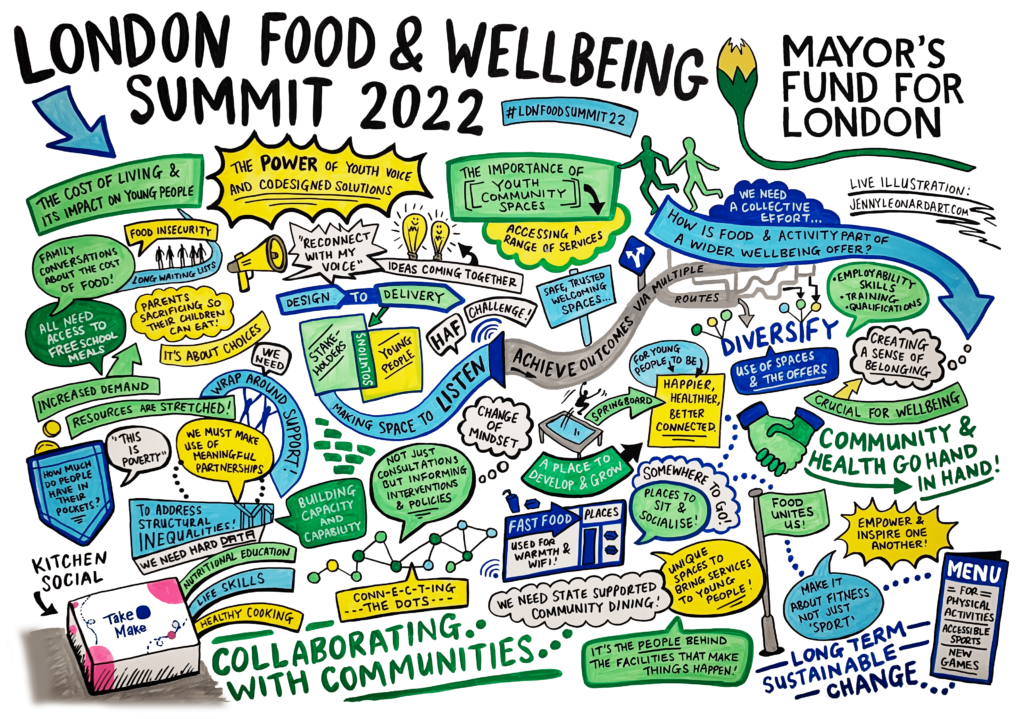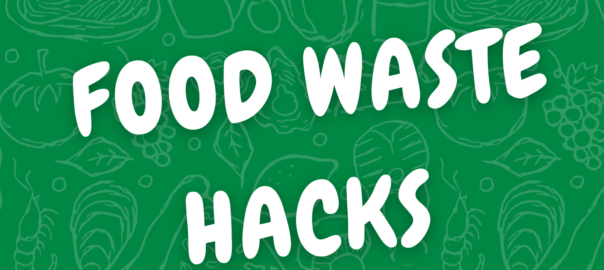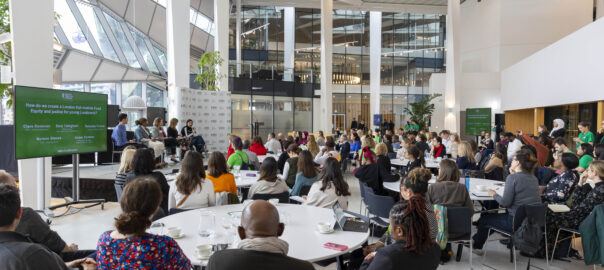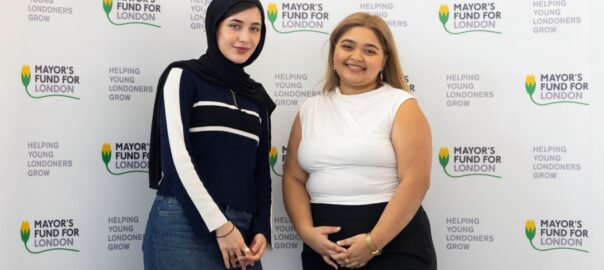What we learnt at the London Food and Wellbeing Summit

The event brought together representatives from across the food and wellbeing sector to share learning and discuss ideas and partnership opportunities in a series of engaging panel discussions. Topics ranged from the serious impact of the cost-of-living crisis on young people to co-designed solutions that are making a difference.
Together, attendees agreed on ways of working together in the future, identifying what else needs to happen to help tackle food insecurity in the immediate crisis and beyond.
Key takeaways
Some of the core messages which emerged from the discussion, in terms of commitments and calls to action are summarised below, and then a more detailed summary of the panel sessions follows.
For London’s local authorities and policymakers
- Keep focused on the wider narrative about increasing income to tackle poverty, but don’t ignore the need for food provision as part of the cost of living response.
- Work with community organisations and local authorities on a broader narrative around sustainability and seeing food security as an equity and climate justice issue
- Support the infrastructure around food distribution, so that we can coordinate efficiently and sustainably
- Commit to ending food insecurity for London’s families and children
For funders
- Provide funding for advocacy, system change and collaboration, as well as for direct delivery
- Think of funding for food and wellbeing as part of a broader narrative about support for space for young people
- Maintain a pandemic response-style shared approach amongst funders to supporting food and wellbeing through the cost of living crisis
- Provide kit (community fridges, trolleys, space) as well as funding for staff to use them
For delivery and community organisations
- Work together – share what you learn, what you do, and bring joint proposals to funders
- Put community and young people’s voices at the centre of your decision-making – and if they say we should do things differently, then listen to them
- Focus more on sustainability and ending waste – share transport costs, support food growing and co-ops, re-use and recycle
Overview of the sessions and their discussions
The context was first set by the panel discussing the rising cost of living and its impact on young people. The panel discussed how this crisis is affecting our young people from their mental wellbeing to their perception of their lives to how stretched resources are becoming for the youth sector as a whole. Perspectives came from funders, the GLA, delivery organisations and young people. Everyone was clear that food insecurity is a consequence of poverty and inequality, and that in the long term tackling the causes of those things must be our priority. But there are urgent needs now and there was a shared commitment to not only offering food but also making sure other vital needs were met, through community organisations and partnerships.
The next panel looked at how and why the power of youth voice was going to be so important as part of shaping solutions to food insecurity. A panel of youth leaders, young people and academics discussed how we should be led by young people, ensuring their voices were heard from the design to the delivery of our work. We had young people leading the way on every panel at the event ensuring they had the first and last words, and examples were shared of how young people were reshaping Holiday Activities and Food programmes (HAF) locally and nationally.
The importance of community youth spaces was our third discussion and our panel of youth workers, youth leaders, young people and youth policy experts showcased not only the power of places but the power of the people who are behind the facilities. We also noted that youth spaces had become places that offer wraparound support, long had time passed where we would focus on solely food or wellbeing, but youth spaces now offered families health checks, links to employment, places to socialise, and internet access.
How food and wellbeing interlink, our last panel, looked at how we can create an ecosystem for young people to thrive and that happens through partnerships but also through the honesty of what works, shared learnings and an understanding that food and wellbeing is just the tip of the iceberg. We have to offer young people full support from activity to employability opportunities in order for them to thrive.
For more on the event, you can read our event blog written by our Youth Board member Joss and Kitchen Social coordinator Freya on our website.
We saw key themes arise throughout the event around collaboration and partnerships, empowering the real expert’s our young people and inspiring one another.
The Mayor of London, Sadiq Khan, in a video message said;
“A generation of unfed children is a recipe for lost talent and wasted potential.”
We cannot stand by and let that happen, but we know we cannot tackle this alone. We need a collective effort to enable long-term sustainable change.
You can find the videos and the photos from the day online:
From speaking with many of you at the event and feedback post the event, we believe there are a range of partnership opportunities:
- Campaigning and convening for policy change
- Delivery support and shared learning
- Strategic partnerships
We will leave you with the most important words from one of the young people who opened the event – Basma:
“We know there is a big hill to climb, and we want you to pledge to help us climb this hill as a team.
“So, let’s connect with each other and make a change for the future.”
In order to get involved in the above, please get in touch with the team and specify how your organisation would like to be involved moving forwards.
Be sure to sign up to our newsletter so you can be the first to know about future events. To subscribe to the newsletter, click the menu button at the top-right-hand corner of this website to open the navigation menu, where you’ll find a field to enter your email address.
Huge thanks are due to all those who attended, presented and participated for making the London Food and Wellbeing Summit a success and something which gives all of us a stronger platform from which to help more young people thrive.




